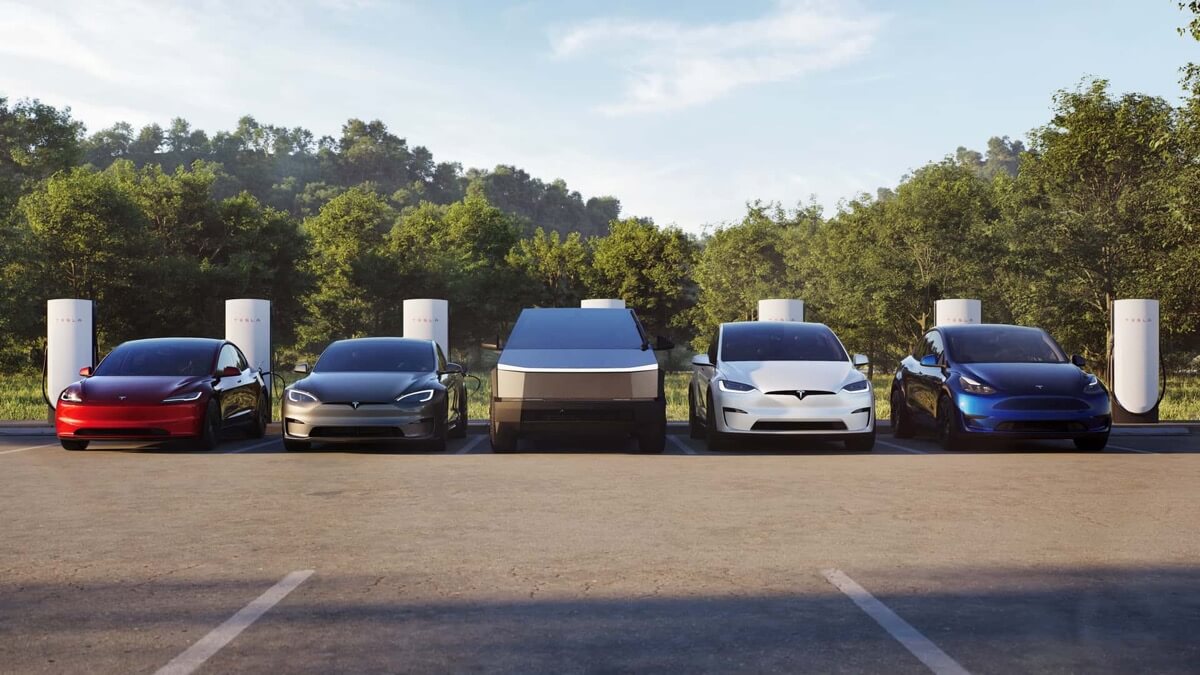Toyota, GM, Hyundai—combine them all, and they still fall short of Tesla’s jaw-dropping $1.1 trillion valuation.
Tesla has done it again, reaching a market value that not only places it far ahead of its competitors but also makes it worth more than the next 15 largest car manufacturers combined. With a market capitalization of $1.1 trillion, Tesla has reclaimed its spot in the elite club of trillion-dollar companies, a level it hasn’t seen since early 2022. This remarkable growth highlights Tesla’s dominance and the massive gap between the electric vehicle leader and traditional automakers.
The company’s stock has soared in recent weeks, largely driven by market optimism surrounding political developments. Tesla CEO Elon Musk’s close ties to President-elect Donald Trump have created a favorable outlook for the brand. Investors are betting on Trump’s proposed corporate tax cuts, which could lower the rate for U.S. manufacturers like Tesla from 21% to 15%. Additionally, there’s speculation about new federal legislation that could streamline regulations for autonomous vehicles, an area where Tesla is a key player. Both factors could accelerate Tesla’s growth in the coming years.
What sets Tesla apart from its competitors is not just its innovative technology but also its ability to weather challenges that other automakers face. While Trump’s proposed tariffs on imported vehicles might hurt brands like GM and Ford, which source EVs like the Mustang Mach-E from Mexico, Tesla builds its cars for the U.S. market domestically in California and Texas. This gives the company a significant edge, keeping it relatively insulated from potential trade restrictions.

Tesla’s success hasn’t been without controversy. Critics argue that the company’s valuation, trading at 100 times its 2025 earnings per share estimate, is inflated compared to traditional automakers like General Motors, which trades at just 5.3 times earnings. Even when compared to other tech giants like Nvidia or Amazon, Tesla’s valuation is unusually high. However, bullish predictions about Tesla’s future growth are keeping investors excited. Analysts recently revised earnings estimates upward, expecting a 20–30% sales boost next year driven by new models like the Cybertruck.
Musk’s political connections have also played a role in Tesla’s market performance. His support for Trump and involvement in government advisory roles could reduce regulatory scrutiny on Tesla and its products. Investors believe this could further solidify Tesla’s position as a leader in the EV market.
Tesla’s dominance becomes even clearer when compared to its closest rivals. Toyota, the second most valuable automaker, has a market cap of $288 billion, while Chinese EV maker BYD is valued at $114 billion. Even when combining the valuations of global players like Hyundai, Stellantis, Kia, and Renault, they still fall short of Tesla’s staggering worth.
As Tesla prepares for another big year, it’s clear that its blend of innovation, strategic positioning, and market confidence has set it apart. Whether or not the current valuation is sustainable, Tesla’s position as a leader in the automotive industry is undeniable. For now, Musk and his team continue to ride the wave of success, leaving competitors scrambling to catch up.








